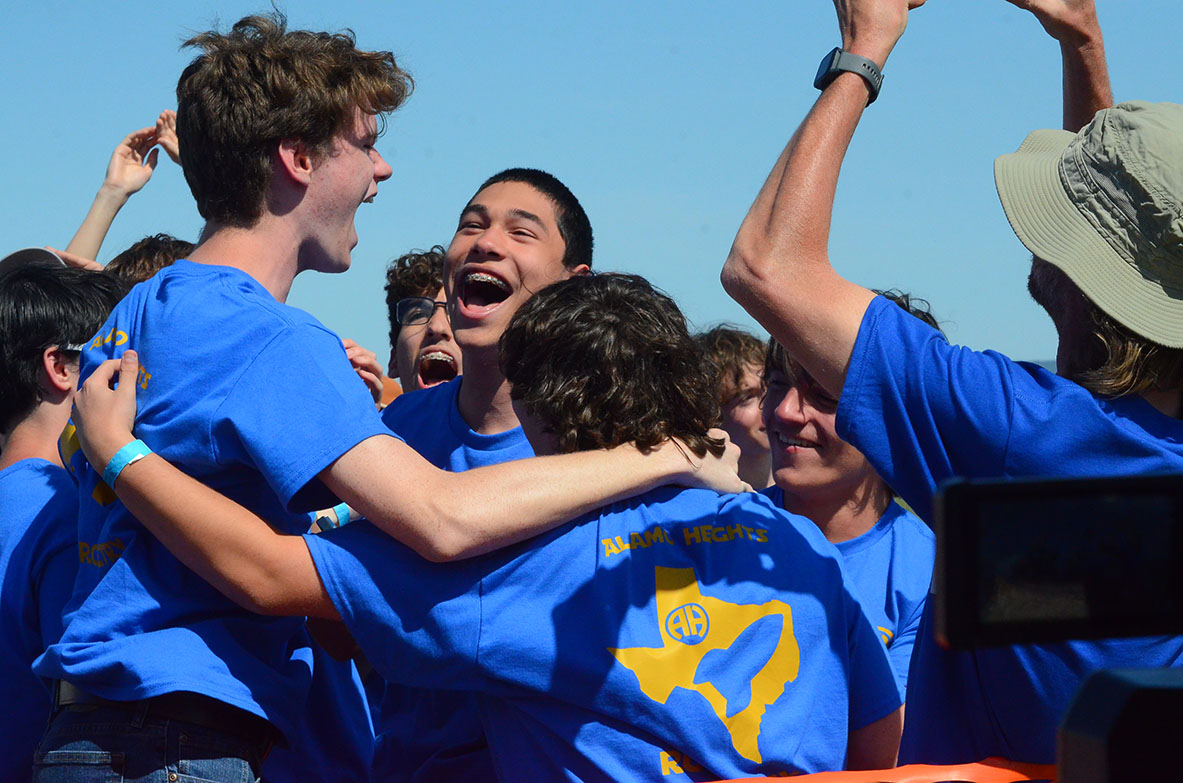 April 30, 2025–Are you a shusher or a susser?
April 30, 2025–Are you a shusher or a susser?
An ongoing debate has revived about the best way to teach kids. The battle lines are drawn as:
1) Sitting kids in desks lined up facing the front of the classroom. Back to basics, rote and repeat, teacher lecturing. This is teacher as lecturer.
2) Project-based learning: Give students a problem to solve, then get out of their way. This is teacher as facilitator.
Which is the royal road to education?
As a former teacher of gifted and talented, I lean toward the latter, which I call “sussing,” as in drawing out knowledge.
A good example is the SystemsGo program, which is now in the midst of its annual rocket launches. Simplified, the teacher challenges the students to design, build, and launch a rocket to hoist a one-pound payload one mile high. That’s as project-based as you can get.
Simplified, the other extreme is “shushing.” That’s what prompted this post.
I was watching the interactions of staff and students at a school assembly. As the performers demonstrated their instruments and played fun familiar tunes, adults roamed the room and continually “shushed” students who were wiggling and whispering while sitting cross-legged on the tile floor.
I found this noteworthy, because the kids were just doing what comes naturally. When a clarinetist is playing baby shark, every kid is going to do the baby shark. And after the song is over, they are not going to go back to instant quiet.
I battled this unnatural need for silence when I was teaching elementary school. Active learning is noisy. My own students were noisy enough that teachers in adjacent classrooms complained to the principal.
But… before all current and former teachers take up their red pens to scold me, let me state that I have come to appreciate that both styles of teaching–and learning–are appropriate. Here’s why:
Before building a rocket, the student needs to have mastered their multiplication tables, math formulas (how to find the volume of a nosecone), and how to follow instructions. All those skills are not best learned by “discovery”–they require rote learning followed by disciplined practice.
Same in music. Before you can score an opera, you need to know how to read the notes on a staff.
In sports, I’ll let you quarterback the team, but only after you’ve done the drills, got into shape, worked on your technique, and performed countless reps.
As a drummer, I have seen this often. You can spot the difference between a drummer who picked up sticks and played along with records, versus the drummer who mastered the 26 rudiments.
But just as you need the basics to do the advanced, you must engage in the higher levels to justify working on the basics. In music, if all you do is repeat scales, you will burn out and run screaming from the practice room. There comes a point when you need to actually make music with friends.
“Education” is one of those fields that everyone is an expert in, simply because everyone has gone through some version of it. But when pressed about what creates the best education, I respond that–in the end–the educational model doesn’t really matter. The best education happens
1) because of the ability of an individual teacher, regardless of whether they are teaching in a public or private school, self-contained classroom, or one-room schoolhouse, and no matter what educational philosophy they follow.
2) when a child wants to learn.
How you make both of those happen, is your model.